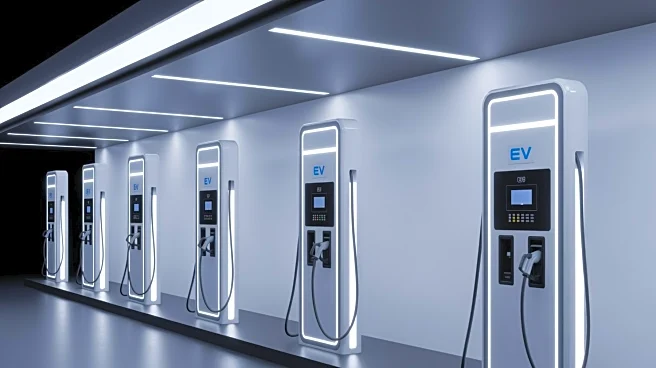What's Happening?
Electric vehicle (EV) sales in the United States have experienced a significant decline following the expiration of the $7,500 federal tax credit. During the Ford Pro Accelerate conference, Ford's Chief Executive Jim Farley predicted a drop in battery
electric vehicle (BEV) demand without the tax credit. This prediction was confirmed by Ford's October sales figures, which showed a 25% year-on-year decrease in BEV sales.
Why It's Important?
The decline in EV sales underscores the critical role that federal incentives play in promoting the adoption of electric vehicles. The reduction in sales could slow the transition to cleaner transportation options, impacting efforts to reduce carbon emissions and combat climate change. Automakers and policymakers may need to explore alternative strategies to sustain EV market growth and encourage consumer adoption in the absence of federal tax incentives.
What's Next?
The automotive industry and government may need to consider new incentives or policies to support EV adoption. This could include state-level incentives, infrastructure investments, or other measures to make EVs more accessible and appealing to consumers. The response from automakers and policymakers will be crucial in determining the future trajectory of the EV market in the U.S.















